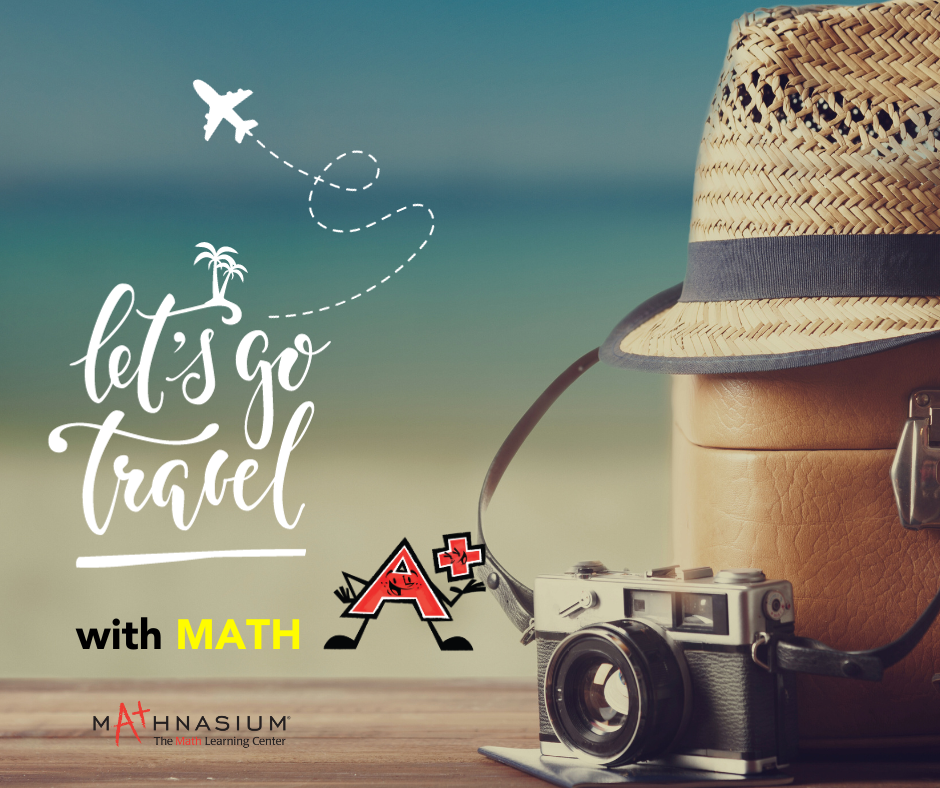Did you know that November is the busiest Travel Day of the whole year!?!
It’s the Sunday after Thanksgiving!
In our fast-paced world, where travel has become an integral part of our lives, mathematics plays a crucial role in making our journeys smoother, more efficient, and economically sound. Whether you're planning a weekend getaway, a cross-country road trip, or an international adventure, the applications of math are omnipresent, aiding in budgeting, distance calculation, and various aspects of travel planning.
- Budgeting: The Foundation of a Seamless Journey
Budgeting is a fundamental aspect of travel planning, and mathematics serves as the cornerstone in crafting a well-balanced financial plan. From calculating the total expenses of the trip to dividing costs among travel companions, math ensures that you stay within your budgetary constraints.
Mathematics helps you break down your expenses into categories, such as accommodation, transportation, food, and activities. By assigning numerical values to these categories and creating a comprehensive budget, you gain a clear understanding of where your money is going. This enables you to make informed decisions, prioritize expenditures, and allocate funds for unexpected contingencies.
- Distance Calculation: Mapping Your Journey
Whether exploring a new city or embarking on a road trip, accurate distance calculation is essential for efficient travel planning. From determining the distance between two points to estimating travel time, mathematics simplifies the navigation process.
Mathematical formulas, such as the distance formula in geometry, help in calculating the straight-line distance between locations. Additionally, algorithms used in navigation apps leverage mathematical principles to compute the most time-efficient routes, taking into account factors like traffic patterns and road conditions.
- Time and Speed: Maximizing Efficiency
The concept of speed, a fundamental mathematical principle, is integral to optimizing travel time. By understanding the relationship between speed, distance, and time, travelers can plan their itineraries more effectively.
For instance, if you know the distance between two destinations and the average speed of your chosen mode of transportation, you can calculate the estimated travel time. This not only helps in scheduling activities but also allows for better coordination with reservations, ensuring you make the most of your time at each location.
- Currency Exchange: Making Every Penny Count
When traveling internationally, currency exchange becomes a critical aspect of financial planning. Mathematics is essential in converting and comparing different currencies, enabling travelers to make informed decisions about their expenses.
Exchange rates and conversion formulas help in determining the equivalent value of your home currency in the destination country. Understanding these mathematical concepts empowers travelers to budget effectively, avoid unnecessary expenses, and make the most of their financial resources.
In conclusion, mathematics serves as an invaluable tool in the realm of travel. From budgeting and distance calculation to time optimization and currency exchange, the applications of math are woven into the fabric of our journeys. Embracing these mathematical principles enhances our ability to plan, execute, and savor every moment of our adventures. So, the next time you embark on a trip, remember that behind the scenes, mathematics is working tirelessly to ensure your travel experience is as seamless as possible.











